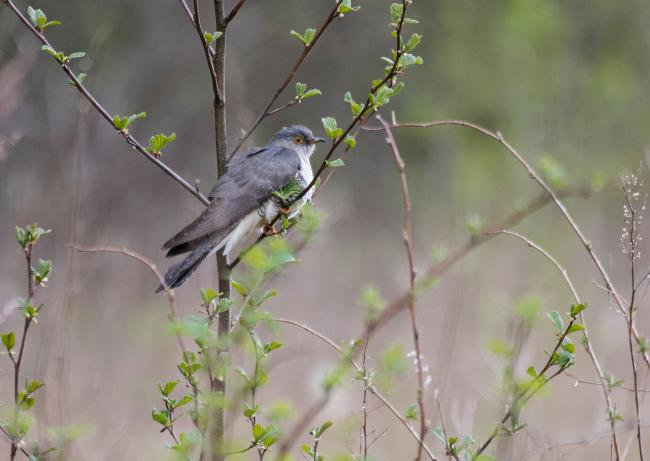Cuckoo
Cuckoo

https://elurikkus.ee/generic-hub/occurrences/11288368-69dd-4e0d-b766-3652afe53cc0
In Estonian folklore, the cuckoo is the most popular and versatile bird. Because of the male bird’s sound cuckoo-cuckoo it is also known as a ‘cuckoo-bird’ or ‘wild cock’. In folk religion a cuckoo is known as an omen bird whose sound predicts the years left to live, a death, luck, marriage, weather and the harvest. The cuckoo is special because it doesn’t build its own nest. It lays its eggs in the nests of smaller birds and leaves them to be reared by them. The cuckoo’s ‘stepparents’ are called 'cuckoo’s farmhands' or 'wives'. The cuckoo’s song provides material for puns in Estonian, because his voice is rendered as 'kuku', which matches the word 'fall!' in Estonian (kukkuma ‘to fall’). Therefore an Estonian cuckoo is literally singing: “fall, fall, fall!” Although Estonian contains many onomatopoeic words, the verb kukkuma 'to fall' has not developed from the cuckoo’s sound, but perhaps from the actual noise of falling.
Mathilda Matjus, Taive Särg (Hiiemäe 2013). Translation: Maarja Villandi-Reiljan.
When a cuckoo flew over a person’s head, the person died.
Kui kägu üle inimese pea lendab, siis sureb see inimene ära.
When a person with an empty stomach heard a cuckoo calling for the first time during the day, he was afraid of being cheated afterwards.
Kui inimene tühja kõhuga esimest korda käokukkumist kuulnud, kartnud ta edaspidi pettasaamist.
If you go out without having eaten and you hear a cuckoo for the first time, you will be cheated the whole year long.
Kui söömata välja lähed ja siis esimest korda kägu kuuled, saad terve aasta petetud.
If you hear a cuckoo the first time in spring and you have no money in your pocket, you will be short of money in the summer; but if you have some money to jingle at a cuckoo, you will be loaded in the summer.
Kui kuuled kevadel esmakordselt kägu ja sul ei ole taskus raha, siis on eesolev suvi rahast vaene, on sul aga raha käole vastu kõlistada, siis on oodata raharikast suve.

